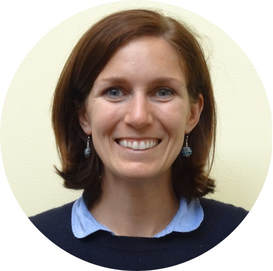
Position: Unconditional Education Coach

I began my educational career as a third-grade teacher in St. Louis Missouri. Before teaching, I always knew that I wanted to go to graduate school for school social work and knew that having experience in the classroom would make me a better resource to my teacher colleagues. After two great years in St. Louis, I moved to Minneapolis, where I completed my graduate studies in social work at the University of Minnesota, and worked a school social worker at Whittier Elementary School.
When I was looking at relocating to the Bay Area, I came across Seneca’s Unconditional Education Program. I read “Unconditional Care” by Sprinson and Berrick and started to implement what I had learned into my role as a school social worker. When I saw the opening for a UE coach position, I knew it was a perfect fit! I am honored to be in the position to serve an elementary school supported by so many resources and great talent.
Fun Fact/Quote?
I can talk with my mouth closed (kind of like an amateur ventriloquist).
What does your average day look like?
I am an early riser! I wake up well before 6AM so that I can spend time with my family before going to work. Then I hop on my bike to school. The ride and the cool morning air help clear my mind and relax my body. When I get to work, I start with emails and then preparing for groups. My office is located right by one of the school’s entrances, so I leave my door open to greet staff as they come in. By some stroke of luck, one of my first morning duties is holding the kindergarten door. I love to imagine adults entering their work buildings with the joy that kindergartners enter our school building! After this, all days look different with a common element: creating and refining standing school systems as well as managing social emotional, behavioral, and mental health services for students. I spend time conducting social skills groups with students, facilitating school team meetings, and problem solving with staff and students.
After school, I bike to my baby’s daycare and pick her up to enjoy some downtime as a family. My partner is a wonderful cook and I love a good book before an early bedtime, which is a great combo!
Why do you do this work?
Holding the stories of our students and their families is both an honor and a gift. When I read this question, faces of students, parents, co-workers flashed through my head. Through this work, I have learned and grown so much from all the various people I have met whether it be co-workers, students, families or community members. I do this work because I believe that schools can be one of the biggest agents of change in a person’s life. I believe that a good education is a right for all students.
What hope do you have for the future of All-In?
All – In is very data driven, this is one of my many favorite things about the program. I would love it if we could develop and package an “All-in” social emotional data system that we could share with schools all over the country. In the meantime, I hope that we continue to check back with schools that we have exited out of for feedback on how to keep the program working even after Seneca leaves.
 RSS Feed
RSS Feed